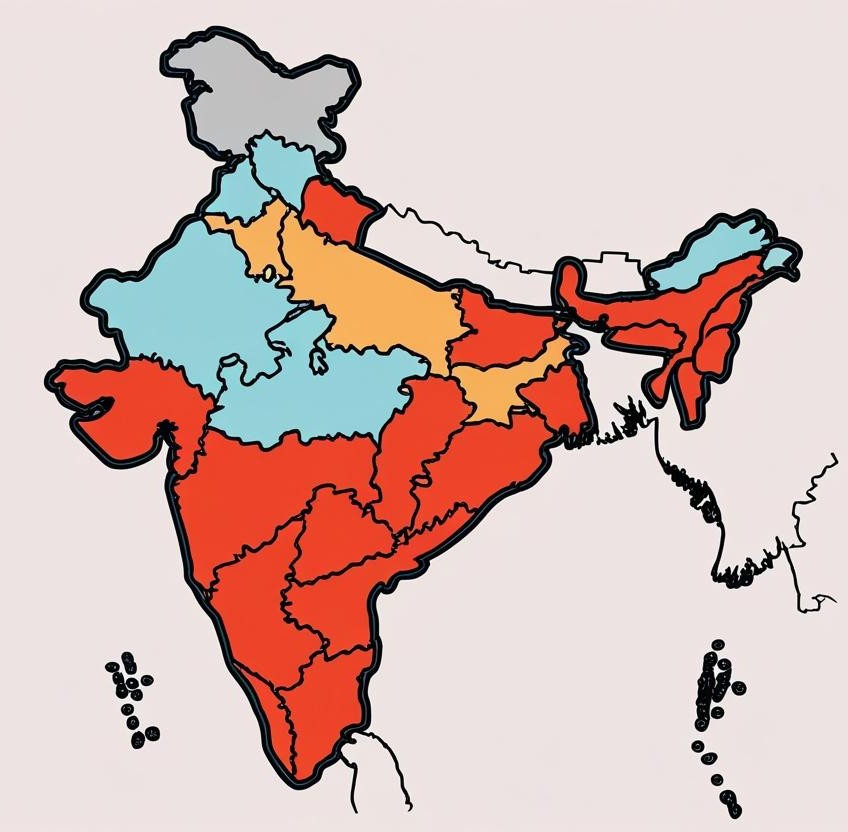As 2025 unfolds, India once again finds itself in the grip of emerging Covid-19 variants that challenge public health systems and citizen vigilance. From NB.1.8.1 to XFG and LF.7, these strains have begun to make headlines across Maharashtra, Telangana, and West Bengal. With global health authorities closely monitoring these variants, it’s crucial for citizens, policymakers, and healthcare professionals to stay updated.
In this comprehensive post, we break down what you need to know about the new Covid‑19 variant in India in 2025, including its symptoms, geographic spread, scientific classification, and actionable health advice.
What Is the New Covid-19 Variant in India in 2025?

As of June 2025, India has reported several new variants of the SARS-CoV-2 virus, most notably:
NB.1.8.1 variant
XFG variant
LF.7 variant
JN.1 variant (still present in background circulation)
These have been categorized by global agencies like the World Health Organization (WHO) and INSACOG (Indian SARS-CoV-2 Genomics Consortium) as Variants Under Monitoring (VUMs) or variants of interest due to their mutations and transmission potential.
Where Are the Variants Emerging in India?

Recent cases of these variants have been identified primarily in:
Maharashtra (notably XFG and LF.7)
Telangana (early NB.1.8.1 and XFG detection)
West Bengal (sporadic XFG cases)
These regions have seen a mild uptick in symptomatic cases, often involving flu-like symptoms and fatigue. However, hospitalizations remain limited as of early June.
Variant Deep Dive: Understanding NB.1.8.1, XFG & LF.7

NB.1.8.1 Variant India
The NB.1.8.1 variant in India is considered one of the more transmissible lineages in 2025. Derived from the Omicron family, it shares spike protein similarities with previous variants but includes new mutations that could enhance immune escape.
Key Features:
Elevated transmission rate in urban areas
Similar symptoms to JN.1 but with more fatigue
Under WHO “Variant Under Monitoring” classification
XFG Covid Variant India
Another emergent variant, XFG, has caused localized concern in Maharashtra and Telangana.
Characteristics:
Symptoms resembling a mild sore throat and persistent dry cough
No major surge in hospitalizations
Genome sequencing suggests closer alignment with recombinant strains
LF.7 Variant in India 2025
Although cases are fewer, LF.7 is being closely monitored due to mutation clusters not previously seen in Indian strains.
Symptoms of NB.1.8.1 and Other Variants
If you’re wondering about NB.1.8.1 symptoms India, here’s what to look for based on early clinical data:
Persistent fatigue
Low-grade fever
Dry cough
Muscle aches
Brain fog (in some cases)
Nasal congestion
These symptoms are generally milder compared to Delta or Alpha variants but may still pose a risk to vulnerable populations.
WHO’s Take: Variant Under Monitoring in India 2025
The WHO has listed NB.1.8.1, XFG, and LF.7 under its Variants Under Monitoring category. This status means:
No current evidence of increased severity
Mutations may impact transmissibility or immune escape
Needs continuous genomic and epidemiological tracking
How to Protect Yourself from NB.1.8.1 and New Strains
Protecting yourself from Covid remains largely the same, though variant-specific vigilance helps.
Precautionary Measures:
Wear N95 masks in crowded or enclosed public areas
Get the latest booster recommended for 2025, especially if immunocompromised
Avoid unnecessary travel to outbreak zones like parts of Maharashtra or Telangana
Monitor symptoms post-travel or after public exposure
Use reliable testing centers for variant-sensitive RT-PCR tests
Covid Variant Update India June 2025
According to the INSACOG and various state health departments, the following updates are relevant for June 2025:
| Variant | Spread | Symptoms | Risk |
|---|---|---|---|
| NB.1.8.1 | High in metro cities | Moderate | Medium |
| XFG | Moderate in West Bengal & Maharashtra | Mild | Low |
| LF.7 | Localized | Mild | Low |
| JN.1 | Declining | Similar to flu | Low |
Are These Variants More Dangerous?
At present, health officials report no significant spike in mortality or ICU admissions due to these variants. However, the fast rate of mutation and regional spread warrants vigilance.
While vaccines appear to provide partial immunity, updated boosters tailored for NB.1.8.1 and related strains are in development.
Conclusion
The emergence of the new Covid‑19 variant in India in 2025, especially NB.1.8.1 and XFG, is a reminder that the pandemic’s evolution is far from over. While symptoms remain largely manageable, the situation calls for proactive awareness, testing, and preventive behavior.
Bookmark this page or follow your local health authority to stay updated on the latest Covid-19 variant trends in India.
